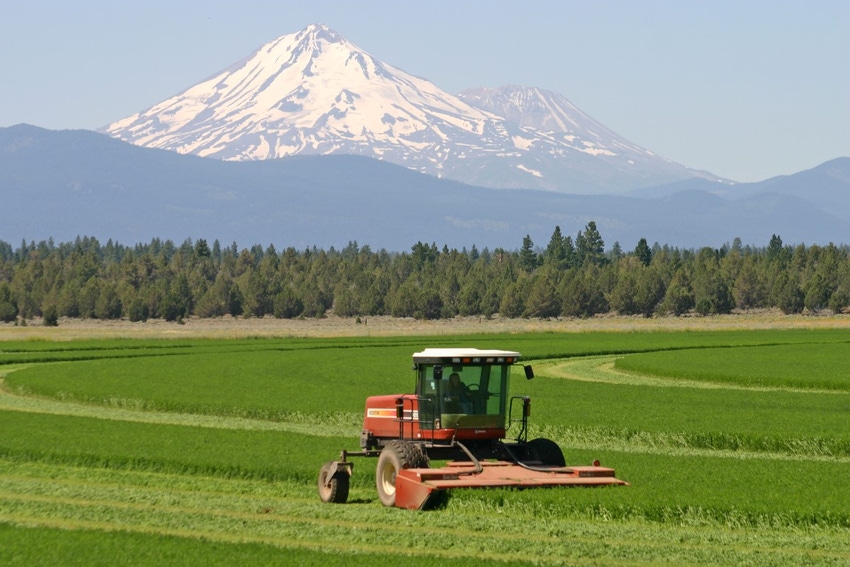
The 2016 California Alfalfa & Forage Symposium. Nov. 29 - Dec. 1 in Reno, Nev., aims to offer pathways to profitability in alfalfa and forage crops for those who attend.The Nov. 29 all-day pest prevention and management workshop will offer ways to improve and refine integrated pest management skills.
August 9, 2016

The 2016 California Alfalfa and Forage Symposium will be held in Reno, Nev. from Nov. 29 – Dec. 1 at the Peppermill Resort. The theme of this year’s event is “Aiming Towards Profitability.”
With much of the agricultural industry today reeling from lower commodity prices, the symposium aims to offer pathways to profitability in alfalfa and forage crops for those who attend.
The symposium is open to growers, pest control advisors, crop advisors, industry members, and university participants. Click here for the symposium website.
In addition to the main symposium sessions, the first day includes a pest management workshop. While pest prevention and management is an ongoing challenge for alfalfa producers, the day-long workshop will offer ways to improve and refine integrated pest management skills.
Continuing education credits have been requested for California, Nevada, and Oregon. The symposium website will be updated with the number of approved hours upon the approval of the applications. If your state is not listed and want credits for participation, contact me at [email protected]
Booth space is available to companies that wish to exhibit. The Exhibit Hall will be open throughout the symposium, with receptions on Tuesday and Wednesday evenings. Information on exhibiting, the exhibitor schedule, and a related application is available online.
Sponsorship opportunities are available for any budget. Visit the website for more information.
Main Symposium Schedule:
Day One, Nov. 29 – Pest management workshop, including the topics: There IS an “I” in IPM; weed management during stand establishment and in established stands; rodent management; pesticide resistance management; insect IPM including weevils, aphids, worms and other pests; nematode management in alfalfa, IPM approaches to alfalfa diseases, and diagnosing alfalfa problems.
Day Two: Nov. 30 – Economics and industry trends, including hay market trends in 2016-2017, California dairy trends, why hay and commodity prices are low, and how to reduce costs in a down year including were to cut and not cut corners.
The Main Session also includes discussions on exports, regulations, and research including: alfalfa exports plus GMO acceptance in export markets; emerging regulatory issues; national funding priorities - opportunities for growers and researchers; and developing funding for research and educational purposes.
Other Main Session topics will focus on irrigation and water use efficiency, including irrigation management principles using ET in alfalfa; alfalfa irrigation during water shortages; tools for improved surface irrigation management; and subsurface drip irrigation in alfalfa.
Addition topics include soil fertility and management, focusing on salinity management in alfalfa, phosphorus and potassium in alfalfa production; and global fertilizer trends and how to better interpret a soil test report.
Day Three: Dec. 1 – Quality alfalfa production and these related issues - defining and re-defining forage quality, changing dairy rations, agronomic effects on forage quality, innovative ways to preserve quality, and bale wrapping techniques to preserve quality.
Another Day Three session will focus on genes and the future of forage crops, including these topics: new genetic technologies which could impact forage crops, field results on Roundup Ready alfalfa and low lignin alfalfa, plus a roundtable discussion on how reduced lignin alfalfa could change dairy production systems and hay markets.
Symposium information including the schedule, speakers, online registration, travel and hotel information, exhibit, and sponsorship opportunities are available online.
This year’s 46th annual symposium is organized by the University of California Cooperative Extension Alfalfa Workgroup and Cooperative Extension scientists serving the agricultural community.
It’s sponsored by the California Alfalfa and Forage Association which represents thousands of California forage growers.
You May Also Like



